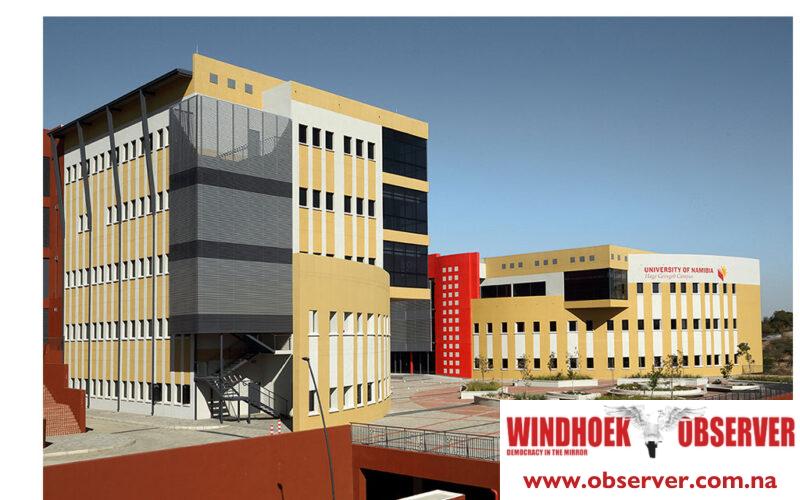Erasmus Shalihaxwe
UNAM is currently reviewing its policies and procedures for students wishing to engage in political activism on campus.
Simon Namesho, the university’s spokesperson, said this last week in response to inquiries about whether the institution has modified its policies on political activism at the various campuses.
The Student Representative Council at the institute’s Oshakati Campus invited students to join any social clubs of their choice, including the Swapo Party Youth League.
“The university has not changed its position. The directive remains a temporary measure to allow the university to review its relevant policies and procedures. This review aims to ensure that rights are exercised with corresponding obligations and to consider the rights of others,” he said.
UNAM faced criticism in May of this year for preventing the Affirmative Reposition (AR) Student Command from holding their scheduled meeting on the university’s main campus in Windhoek.
Ellen Namhila, the university’s pro vice chancellor for finance, administration, and resource mobilization, issued a directive urging management to take proactive steps to prevent the use of UNAM facilities and venues for political campaigns, recruitments, or other activities.
Following the incident, Namesho said the institution had not changed its position on political activism on campus, but it was a temporary measure to allow management to review its policies and procedures.
“The directive will stay in place until the policy and procedure review is completed. The updated policies and procedures will outline policy statements and objectives and clearly define request and approval procedures,” said Namesho.
He added that UNAM has various student clubs and societies registered with the Directorate of Student Affairs across its 12 campuses, and events hosted by registered student societies must be politically sensitive and considerate of others to avoid possible confrontations.
“The invitation from the Oshakati Campus Student Representative Council was to invite and encourage the student population to participate in diverse student clubs and societies in the context of a holistic student learning experience. Apart from the Swapo Party Youth League, other politically linked clubs and societies are registered in the Directorate, such as the LPM Youth Command Element, and the AR Students Command, among others,” he explained.
Namesho further added that the university is an engaged academic space characterised by knowledge creation and dissemination from different conceptual and ideological frameworks.
According to him, the space is for critical thought in teaching, learning, and research, with due regard and respect for divergent views and the rights of others.
“The university’s policies provide for these principles, aiming to balance respectful academic discourse without infringing on the rights of others. Critical thinking and respect for and appreciation of diversity are at the core of the university’s functions,” he said.




